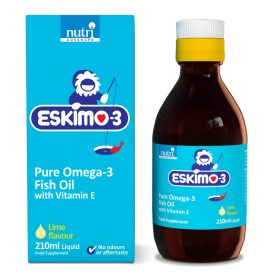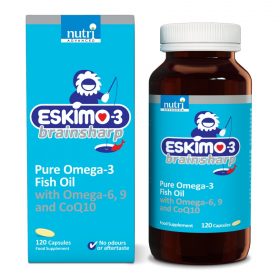Uncategorized
Healthy Joint Supplements
The Research-Backed Benefits of Omega-3s for Supporting Joint Health
Written by Rachel Bartholomew BA (Hons), Dip ION, mBANT, CNHC, GHW
If you’re taking action to improve your joint health, it’s important to understand why. Unfortunately though, when you start digging, it’s easy to get lost in a tangled web of science, be left none-the-wiser and still unsure on the best action to take.
Here’s 5 simple steps to understanding how omega-3s support joint health:
1. Omega-3s are a particular type of fat, termed ‘essential’ because our bodies cannot make them. This means we must include omega-3s in our diets. Interest in the value of upping intake has risen steadily in the last 20 years or so, and research has gathered pace to identify many different ways they can support our health.
2. One area that has received much attention in particular is the influence of omega-3s on joint health. Chronic inflammation lies at the root of many painful joint problems, such as arthritis, and omega-3s have particular value for bringing inflammation back into balance, thus they have significant potential in this area.
3. Omega-3s are found in nuts and seeds such as walnuts, flaxseeds and chia seeds, and in oily fish such as salmon, mackerel, anchovies, sardines and herring. When we consume these types of fat in our diets, our bodies can convert them into powerful anti-inflammatory compounds.
Unfortunately, modern-day Western diets are typically lacking in omega-3s and instead feature higher levels of another type of fat called omega-6. Omega-6 fats are also essential, but can be converted into more pro-inflammatory compounds which is bad news for joint health.
4. Bringing inflammation back into balance is an important focus for anyone wanting to address painful inflammatory joint problems, or indeed for anyone wanting to protect joint health, at any age. Whilst both omega-3 and -6 fats are essential and important for health, it is important that our intake is balanced. Our hunter-gatherer ancestors likely would have consumed omega 6: 3 fats in a ratio of 4:1, whereas nowadays the ratio is somewhere closer to 20:1!
5. Increasing intake of omega-3s is generally agreed to be the best way to bring the omega 6:3 ratio back into balance. Addressing this ratio can help to support balanced inflammation which has significant benefits for joint health. And whilst eating more nuts, seeds and oily fish would seem to be the obvious solution, it’s not quite that straightforward for two reasons.
Firstly, the body’s ability to convert omega-3s into anti-inflammatory compounds is fairly limited; nuts and seeds require a lengthier conversion than oily fish, so oily fish is generally considered to be a better source.
Secondly, oily fish are commonly contaminated with harmful pesticides and toxins, so whilst upping your intake will result in higher omega-3 intake, you may also get an increased dose of toxins as an unwanted by-product. Taking a daily supplement of omega-3-rich fish oil that has been thoroughly purified to remove harmful toxins helps to overcome these problems.
Multiple studies have demonstrated benefit in using omega-3 fats to support improved joint health, reduce pain, support immune balance and calm inflammation.
However, the purity of Omega 3 Supplements various hugely due to questionable or poor processing methods.

Research Snippets: Omega-3 & Joint Health
• In a 2016 study, researchers found that supplementation with omega-3 fats Eicosapentaenoic Acid (EPA) & Docosahexaenoic Acid (DHA) improved symptoms of arthritis by increasing the production of specialised pro-resolving mediators (SPMs) at the site of inflammation. Results showed that the synthesis of SPMs is an important mechanism by which omega-3s help to improve symptoms of arthritis.1
• In a 2018 systematic review and meta-analysis which included 20 randomised controlled trials (RCTs) and involved 1252 patients, researchers found that consumption of omega-3 fatty acids significantly improved eight rheumatoid arthritis disease-activity-related markers.2
• In a 2020 review article published in the Mediterranean Journal of Rheumatology, researchers reviewed the effects of omega-3 in rheumatoid arthritis. The researchers concluded, “omega-3 fatty acids…/… act as precursors to lipid mediators of inflammation and may attenuate and modulate the autoimmune inflammatory response. They have been shown to ameliorate or prevent experimental arthritis and may decrease disease activity in rheumatoid arthritis”.3
• A 2020 prospective cohort study was carried out in nearly 5,000 individuals to examine the relationship between the inflammatory potential of the diet and knee osteoarthritis (OA). The researchers found that a higher dietary inflammatory potential increased the risk of knee OA. Results showed that those with the most pro-inflammatory diet had 73% more likelihood of developing knee OA than those with the most anti-inflammatory diet. These results strongly support the use of an anti-inflammatory diet to help reduce the risk of knee osteoarthritis. Increasing intake of omega-3s to improve the dietary ratio of omega-6:omega 3-is an important factor in reducing the overall inflammatory potential of the diet.4
References:
1. Barden AE, Moghaddami M et al. Specialised pro-resolving mediators of inflammation in inflammatory arthritis. Prostaglandins Leukot Essent Fatty Acids. 2016 Apr; 107:24-9.
2. Gioxari A, Kaliora AC et al. Intake of omega 3 polyunsaturated fatty acids in patients with rheumatoid arthritis: a systematic review and meta-analysis. Nutrition. 2018. Jan;45:114-124.e4.
3. Kostoglou-Athanassiou I, Athanassiou L, et al. The effect of omega 3 fatty acids on rheumatoid arthritis. Mediterranean Journal of Rheumatology. 2020 Jun; 31(2): 190-194.
4. Liu Q, Hebert JR, et al. Inflammatory potential of diet and risk of incident knee osteoarthritis: a prospective cohort study. Arthritis Research Therapy. 2020; 22: 209.




